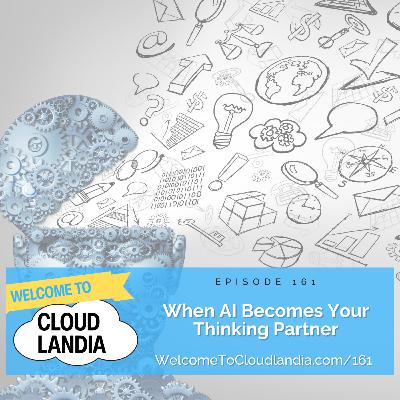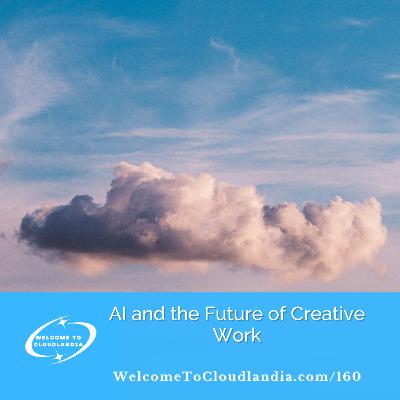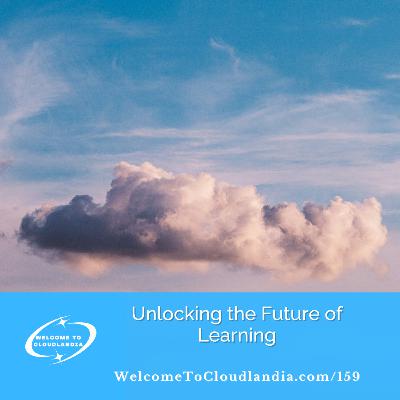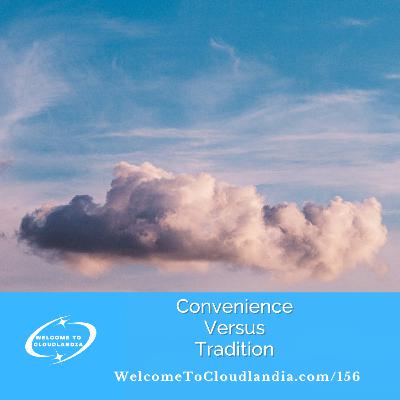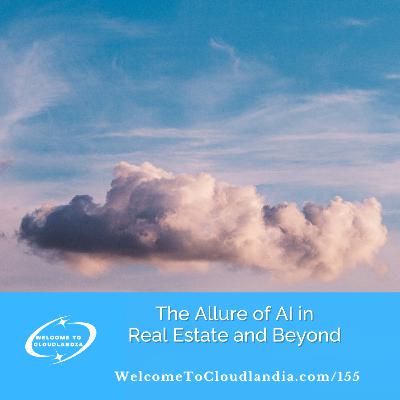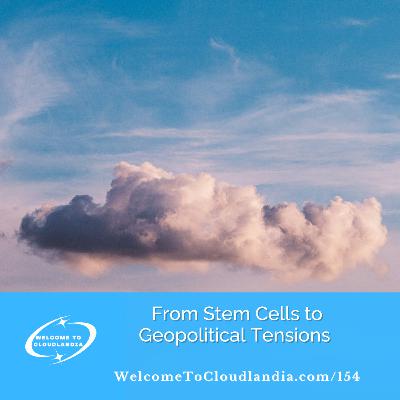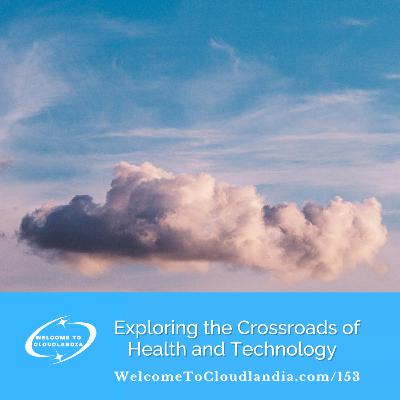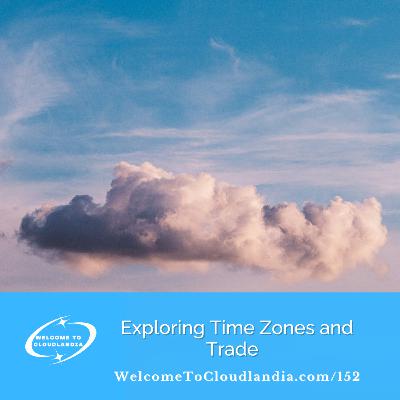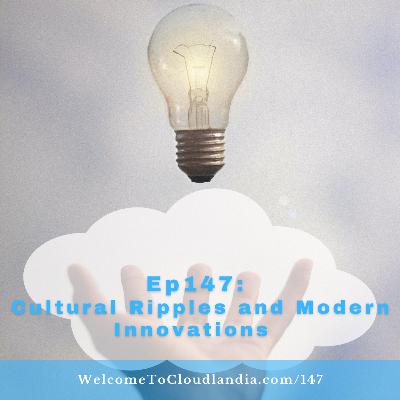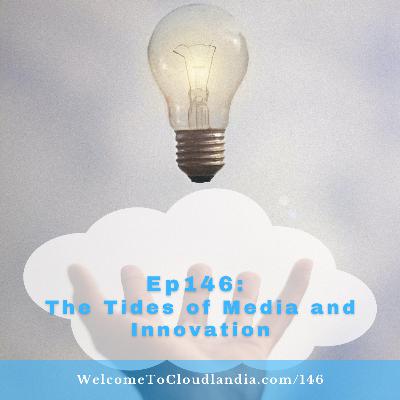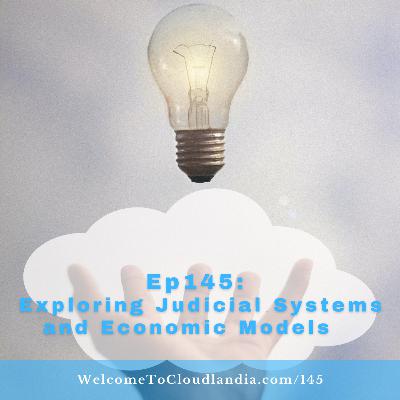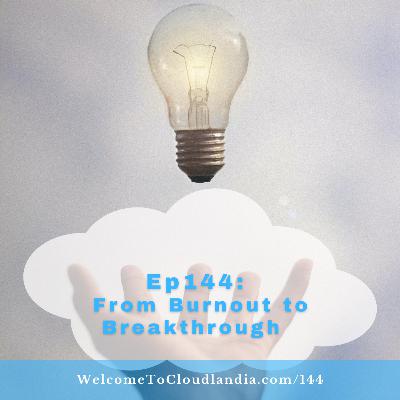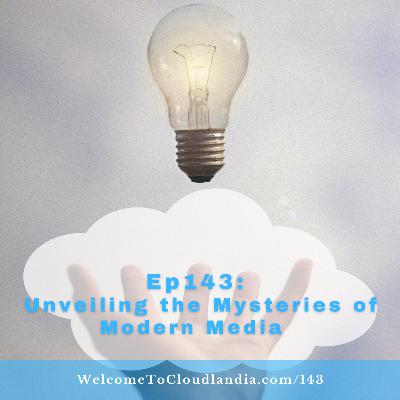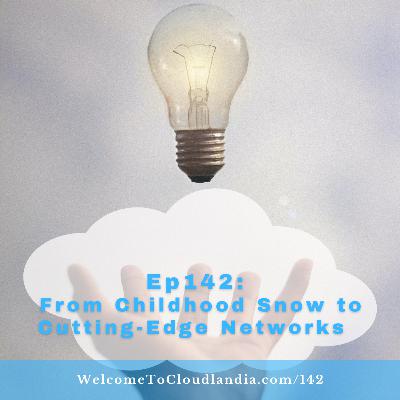Ep148: Unexpected Snow in the Sunshine State
Description
In this episode of Welcome to Cloudlandia, We explore the unexpected weather patterns that challenge our understanding of climate and geography. A surprising cold snap in Florida becomes the starting point for a broader conversation about climate variability. Dan shares personal experiences from Phoenix and Edmonton, highlighting the dramatic temperature shifts that reveal the complexity of our planet's weather systems.
Our discussion then turns to the human fascination with Earth's resilience and our speculative nature about the world's potential existence without human presence. These reflections provide a unique lens for understanding climate change, moving beyond abstract data to personal observations and experiences. The unpredictability of weather serves as a metaphor for the broader environmental transformations we're witnessing.
Shifting gears, we delve into a critical political discourse centered on the fundamental question: "Who pays for it?" We examine policy proposals ranging from universal basic income to more ambitious financial initiatives. The conversation explores the complex financial dynamics of such proposals, particularly how higher-income earners often bear the primary financial burden.
SHOW HIGHLIGHTS
Links:
WelcomeToCloudlandia.com
StrategicCoach.com
DeanJackson.com
ListingAgentLifestyle.com
TRANSCRIPT
(AI transcript provided as supporting material and may contain errors)
Dean: mr Sullivan.
Dan: Well, did you thaw out?
Dean: I am in the process of thawing out. This has been a Bizarre, I finally saw the sun came out. Yesterday I was having a chat with charlotte about the weather and there's only been two days in january where the temperature has been above 70 degrees. Yeah, this has been an unusually cold and rainy january. We actually had snow up in the northern part of Florida.
Dan: Tallahassee, I think had snow.
Dean: Yeah, Tallahassee had snow all the way down to Pensacola.
Dan: I think, yeah, all the way down to Pensacola.
Dean: The whole panhandle had snow, it's not good. No bueno, as they say.
Dan: Well, they said things were going to be different with Trump.
Dean: Well, here we are, six days in and the sun's already out, dan, it's warming up. That's so funny.
Dan: Yeah, and people in the South really aren't prepared for this, are they?
Dean: No, and I can speak as a Southerner.
Dan: You actually have an ancestral memory of things being really cold. I mean, you were born in a very cold place. That's right, you know so I'm sure you know that got imprinted somehow on your.
Dean: I think so I must have genetic, like I must have the, you know, the active pack for super cold weather. It must be installed at a genetic level when you're born in a certain area right, but it doesn't explain I don't prefer it at all.
Dan: Now Babs and I are on Tuesday, are flying to Phoenix and we'll be there for two and a half weeks Two and a half weeks we'll be there. And it'll be like maybe 65 degrees and the Arizonians will be complaining about it. And I said you have no sense of perspective.
Dean: Right.
Dan: You have no sense of perspective and anyway, you know I think I've mentioned this before this is the biggest obstacle that the global warming people have.
Dean: How do we explain this cold no?
Dan: One of their biggest problems is that nobody experiences climate. We only experience weather. Yes, yeah, and it's like abstraction that they try to sell. But nobody experiences abstractions. They experience reality, and it must be very frustrating for them. It must be very frustrating for them. They discovered, for example, that Antarctica now with really accurate readings has actually cooled over the last 20 years, that, year by year by year, there's actually been a cooling in Antarctica.
And the same thing goes for Greenland. Greenland has actually gotten colder over the last 20 years and they keep trying to sell a different message. But, the actual, now the records, because they made claims 20 years ago that things were getting worse. And the other thing is this 1.5 degrees centigrade thing that they have. Well, everybody in the world probably experiences a 1.5 degrees difference in the temperature every single day of their life temperature every single day of their life.
So what's your take on people who want to change the whole world because they have an abstraction that you want to?
Dean: take seriously.
Dan: What do you think of that? Yeah?
Dean: your whole. You know this. What you and I've talked about, the idea that even right at this moment, there is a variation of. I wonder actually what the wide variation today is in temperature. That there is somewhere in Riyadh or somewhere it's, you know, it's super, super hot and somewhere in none of it it's super, super cold and people are getting on with their day. Yeah.
Dan: I actually did a difference in measurement this week, exactly to answer your question you did, so the highest that I've ever experienced is 120.
Dean: That's your personal.
Dan: And that was Phoenix, and the lowest I've ever experienced is minus I'm talking Fahrenheit here. Okay, so 120 degrees Fahrenheit. That was in Phoenix, and the lowest that I've ever experienced is minus 44 in Edmonton.
Dean: Right.
Dan: So that's a 164 degree difference that I've experienced, and, as far as I can remember, the day in which I experienced 120 seemed like a normal day, and the day that I experienced 44 below that seemed like a normal day too yeah dressed differently, thankfully. Yeah, dressed differently. Adjusted my behavior to suit the circumstances. Yeah, you know and the only thing they had in common is that you didn't spend much time outside.
Dean: Right, exactly, yeah, that whole, yeah. I never really give much, I never really give much thought to it. You know, my whole Trump card for me of it was that I just can't have them explain how in the world the Earth raised itself out of an ice age without the aid of combustible engines, you know. That's what I wonder? Right, like I think the earth, I think everybody talks about that Save the earth. Well, the earth is going to be fine long after it spits us off. You know, that's the truth.
Dan: It's very adaptable.
Dean: I used to watch a show, dan dan, that used to show uh, it was called life after people, and it would show cities and things like what would the the progression of what happens if all of a sudden the people disappeared, like how long it would take for nature to reclaim a city, you know, and it's not long, in the big picture of things, for nature to take back over, you know yeah, I I wonder I wonder what prompts people to uh, almost see that as a positive thing, because the people who made that that made I.
Dan: I know a little bit about the, you know the documentary film yeah that well. It wasn't a documentary, it was a fantasy you know it was a, it was a fantasy, but but what do you think's going on inside the brain of the person who thinks that that's worth thinking about?
Dean: Yeah, I don't know. It's hard to explain anything that we think about the fact that there are people. I think that's one of the joys of the human experience is, you think about what you want to think about and it doesn't matter what other people think about what you want to think about,


